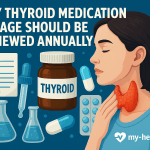This article is for informational purposes only and should not be considered medical advice. Always consult a healthcare professional for personal health concerns.
Understanding Hormonal Balance
Hormones are the body’s chemical messengers, influencing everything from mood and energy levels to reproductive health and metabolism. For women, maintaining hormonal balance is crucial for overall well-being. But what does hormonal balance really mean, and why is it so important?
Hormonal imbalances can lead to a variety of health issues, including irregular menstrual cycles, weight gain, mood swings, and fatigue. Understanding how to achieve and maintain hormonal balance is essential for every woman. The pathophysiology of hormonal imbalance often involves interactions between various hormones, such as estrogen, progesterone, and cortisol, which can be affected by lifestyle factors, environmental toxins, and underlying health conditions.
For instance, estrogen and progesterone work together to regulate the menstrual cycle, while cortisol, known as the stress hormone, can interfere with their balance when elevated due to chronic stress. Moreover, thyroid hormones play a significant role in metabolism and energy levels; imbalances can lead to conditions like hypothyroidism or hyperthyroidism, further complicating hormonal health.
Key Factors Influencing Hormonal Balance
Several factors can disrupt hormonal balance, including:
- Diet: Nutritional choices play a significant role in hormonal health. A diet rich in whole foods, healthy fats, and lean proteins supports hormone production.
- Stress: Chronic stress can lead to elevated cortisol levels, disrupting the delicate balance of other hormones. This can create a feedback loop where stress affects hormonal balance, leading to further stress.
- Exercise: Regular physical activity can help regulate hormones and improve mood. It also enhances insulin sensitivity, which is crucial for maintaining metabolic health.
- Sleep: Quality sleep is vital for hormonal regulation. Poor sleep can lead to imbalances in hormones like insulin and cortisol, exacerbating health issues.
- Age: Hormonal changes are a natural part of aging, particularly during puberty, pregnancy, and menopause. These transitions can bring about significant hormonal fluctuations that require attention.
Essential Tips for Achieving Hormonal Balance
1. Optimize Your Diet
Eating a balanced diet is foundational for hormonal health. Focus on:
- Whole Foods: Incorporate plenty of fruits, vegetables, whole grains, and lean proteins into your meals. For example, leafy greens like spinach and kale are rich in nutrients that support estrogen metabolism.
- Healthy Fats: Foods rich in omega-3 fatty acids, such as salmon, walnuts, and flaxseeds, can help balance hormones. These fats are crucial for the production of sex hormones.
- Limit Sugar and Processed Foods: High sugar intake can lead to insulin resistance and other hormonal issues. Try swapping sugary snacks for fruits or nuts to stabilize blood sugar levels.
2. Manage Stress Effectively
Stress management is crucial for maintaining hormonal balance. Consider these techniques:
- Meditation: Regular meditation can reduce stress and lower cortisol levels. Even just 10 minutes a day can make a difference.
- Mindfulness Practices: Activities like yoga and tai chi can promote relaxation and balance. These practices not only help in reducing stress but also improve overall physical health.
- Time in Nature: Spending time outdoors can improve mood and reduce stress. Nature walks can be a simple yet effective way to enhance your well-being.
3. Prioritize Sleep
Quality sleep is essential for hormonal regulation. Aim for:
- 7-9 Hours of Sleep: Most adults need this amount for optimal health. Sleep is when the body repairs itself and regulates hormone levels.
- Consistent Sleep Schedule: Going to bed and waking up at the same time each day can help regulate your body’s internal clock. This consistency is key to improving sleep quality.
- Sleep Hygiene: Create a restful environment by limiting screen time before bed and keeping your bedroom dark and cool. Consider using blackout curtains and white noise machines.
4. Incorporate Regular Exercise
Physical activity can significantly impact hormonal health. Aim for:
- Regular Workouts: Aim for at least 150 minutes of moderate aerobic activity per week. Activities like brisk walking or cycling are excellent choices.
- Strength Training: Incorporating strength training exercises can help maintain muscle mass and support metabolic health. Lifting weights or using resistance bands can be beneficial.
- Mind-Body Exercises: Activities like yoga and Pilates can enhance flexibility and reduce stress, further supporting hormonal balance.
5. Monitor Your Menstrual Cycle
Your menstrual cycle can provide insights into your hormonal health. Consider:
- Tracking Symptoms: Keep a journal of your menstrual cycle, noting any symptoms like mood changes, cramps, or irregularities. Apps can help you track patterns over time.
- Consulting a Healthcare Provider: If you notice significant changes or irregularities, it may be time to seek professional advice. Early intervention can help address potential issues before they escalate.
6. Consider Supplements Wisely
While a balanced diet is the best source of nutrients, some supplements may help:
- Omega-3 Fatty Acids: These can support hormonal balance and reduce inflammation. Consider a high-quality fish oil supplement if your diet lacks sufficient omega-3s.
- Vitamin D: Essential for overall health, low levels of vitamin D have been linked to hormonal imbalances. Sun exposure and fortified foods can help maintain adequate levels.
- Magnesium: This mineral plays a role in over 300 biochemical reactions in the body, including hormone regulation. Foods like nuts, seeds, and leafy greens are good sources.
Myth vs. Fact
| Myth | Fact |
|---|---|
| All hormonal imbalances are due to age. | Hormonal imbalances can occur at any age and can be influenced by lifestyle factors. |
| Hormonal health is only important during menopause. | Hormonal balance is crucial throughout a woman’s life, from puberty to menopause and beyond. |
| Weight gain is always due to hormonal imbalance. | While hormones can affect weight, many factors, including diet and lifestyle, play significant roles. |
Patient Vignette
Meet Sarah, a 34-year-old woman who struggled with irregular periods and mood swings. After consulting her healthcare provider, she learned about the importance of stress management and dietary changes. By incorporating yoga into her routine and focusing on whole foods, Sarah noticed significant improvements in her menstrual cycle and overall mood. Her story illustrates the power of lifestyle changes in achieving hormonal balance.
Frequently Asked Questions
What are the signs of hormonal imbalance in women?
Signs can include irregular periods, weight changes, mood swings, fatigue, and sleep disturbances. These symptoms can vary widely among individuals.
How can I naturally balance my hormones?
Focus on a balanced diet, regular exercise, stress management, and adequate sleep. Small, consistent changes can lead to significant improvements over time.
Is hormonal imbalance common?
Yes, hormonal imbalances are common among women and can occur at various life stages. Conditions like PCOS and thyroid disorders can also contribute to imbalances.
When should I see a doctor about hormonal issues?
If you experience persistent symptoms like irregular periods or severe mood changes, it’s important to consult a healthcare provider. Early intervention can lead to better outcomes.
Can diet affect my hormones?
Absolutely! A diet high in processed foods and sugar can disrupt hormonal balance, while whole foods can support it. Consider incorporating more fiber-rich foods to help regulate insulin levels.
Additional Considerations
While the tips outlined above are foundational, it’s essential to recognize that individual experiences with hormonal balance can vary widely. Factors such as genetics, existing health conditions, and even environmental exposures can significantly influence hormonal health. For example, endocrine-disrupting chemicals (EDCs) found in certain plastics and personal care products can mimic or interfere with hormone action, potentially leading to imbalances.
Moreover, hormonal balance is not just about managing symptoms; it’s about understanding the underlying mechanisms. For instance, women with conditions like Polycystic Ovary Syndrome (PCOS) may require more targeted interventions, such as insulin-sensitizing medications or specific dietary adjustments, to address their unique hormonal challenges.
As you embark on your journey toward hormonal balance, consider keeping an open dialogue with your healthcare provider. They can help you navigate the complexities of hormonal health and recommend personalized strategies that align with your individual needs.
Key Takeaways
- Hormonal balance is crucial for women's overall health.
- Diet and lifestyle changes can significantly improve hormonal balance.
- Regular exercise and stress management are key components.
- Monitoring your menstrual cycle can provide insights into hormonal health.
- Consult a healthcare provider for persistent hormonal issues.
References
- PubMed: Hormonal Balance and Women's Health
- WHO: Women’s Health and Hormonal Changes
- CDC: Hormonal Health and Lifestyle Factors
- NHS: Tips for Managing Hormonal Imbalance
- UpToDate: Hormonal Health in Women
- Harvard Health Publishing: The Importance of Diet in Hormonal Balance








Post a comment